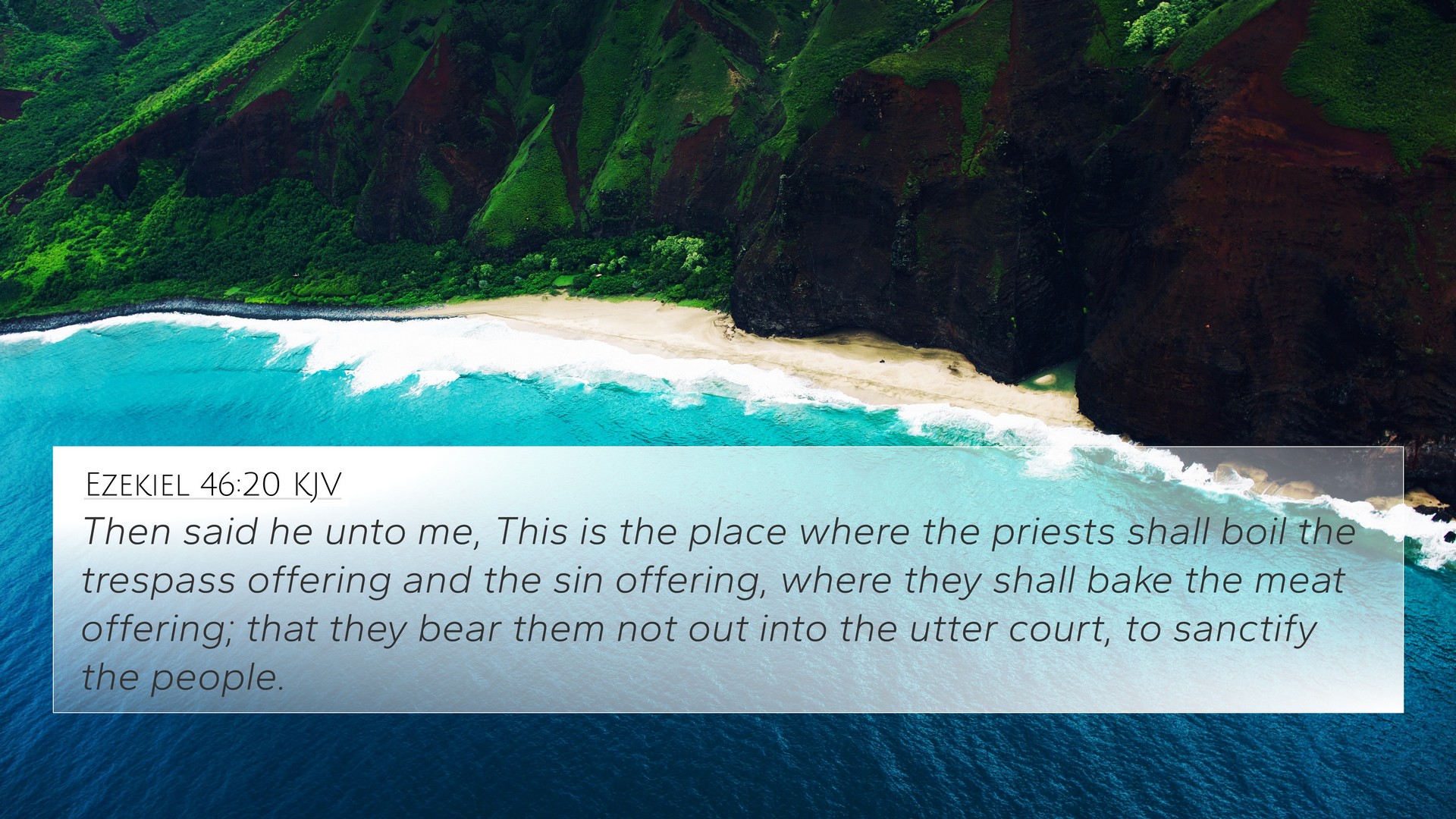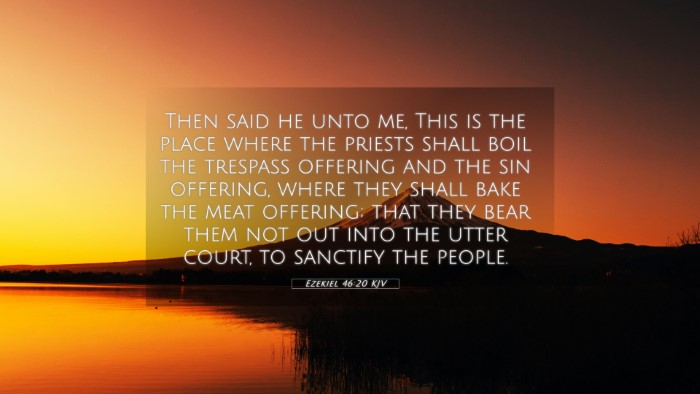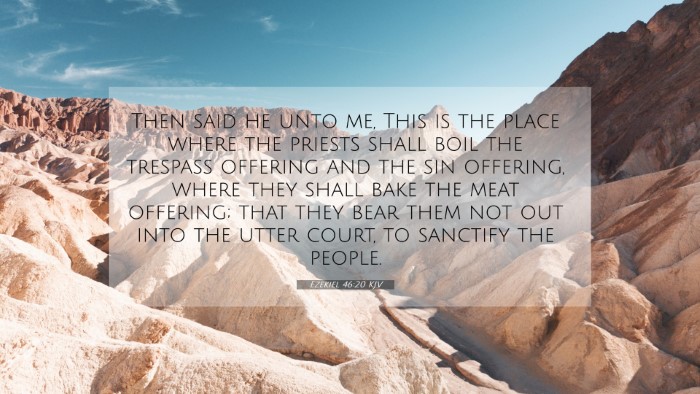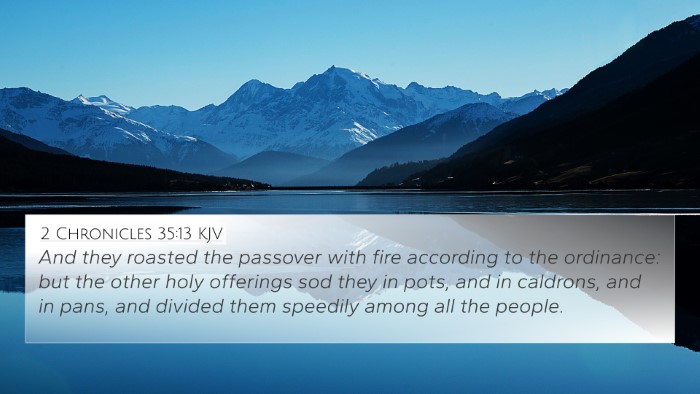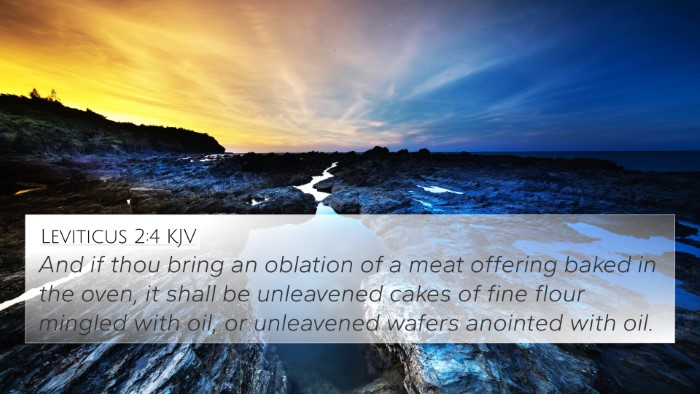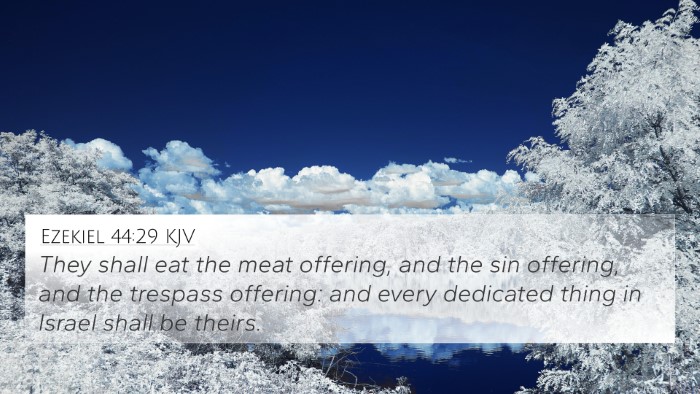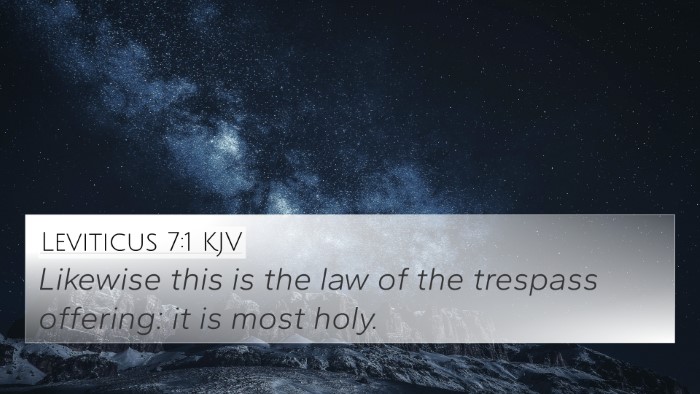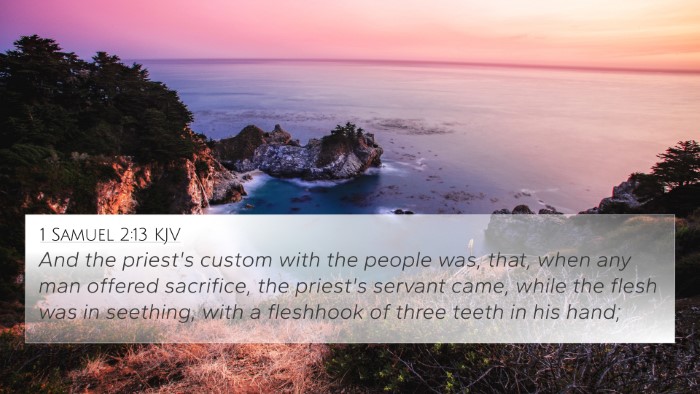Ezekiel 46:20 - Understanding the Passage
Ezekiel 46:20 states: "And he said unto me, This is the place where the priests shall boil the trespass offering and the sin offering, where they shall bake the meat offering; that they bear them not out into the utter court, to sanctify the people."
This verse is part of a detailed vision given to the prophet Ezekiel regarding the future temple and its worship practices. It emphasizes the sanctity of the offerings and the process involved in their presentation to God, highlighting the importance of maintaining holiness in the act of worship.
Key Themes
- The Role of the Priests: The priests are seen as mediators who perform sacrifices and manage the offerings.
- Importance of Ritual Purity: The verse underscores the need to keep the offerings within sacred spaces to preserve their sanctity.
- Connection to Sin Offerings: Highlights the need for atonement and the recognition of sin within the community.
Interpretations from Public Domain Commentaries
Matthew Henry: In his commentary, Henry notes the meticulous nature of the worship described in Ezekiel, emphasizing that the instructions for the offerings reflect God's desire for order and holiness in worship. He points out that this passage underscores the serious nature of offerings and the need for priests to ensure that they are conducted properly to avoid defiling the sanctity of the community.
Albert Barnes: Barnes elaborates on why the offerings had to be prepared in designated areas, explaining that it prevented the sacred from becoming common. He associates this practice with the notion of spiritual cleanliness, indicating that coming into the presence of God requires careful adherence to His laws and commands.
Adam Clarke: Clarke provides context by discussing the significance of the trespass offering and its relation to sin. He argues that the specified process for offerings acts as a reminder to the Israelites of their relationship with God and the serious implications of their sins. This, he asserts, is a crucial teaching for maintaining the community's spiritual health.
Cross-References
This verse can be linked with several other Biblical passages that enhance its understanding:
- Leviticus 5:6-10: Discusses the requirements for guilt offerings, connecting to the theme of sin and atonement.
- Hebrews 10:4: Addresses the impossibility of animal sacrifices removing sins, reinforcing the need for Jesus as the ultimate sacrifice.
- 1 Peter 2:5: Compares believers to living stones, a holy priesthood, making spiritual sacrifices acceptable to God.
- Ephesians 5:2: Encourages believers to walk in love, as Christ loved us and offered Himself for us as a fragrant offering.
- Isaiah 53:10: Foretells the suffering servant as a guilt offering, linking the Old Testament practice to Christ’s future sacrifice.
- Numbers 18:1-7: Discusses the responsibilities of the priests, establishing a precedent for the reverence associated with offerings.
- Romans 12:1: Urges believers to present their bodies as a living sacrifice, holy and pleasing to God, tying into the themes of sacrificial worship.
Thematic Connections
The connections between this verse and other scripture highlight the unity of the Bible's message concerning worship, sacrifice, and community in relation to God. Understanding how specific verses interconnect can provide deeper insights into God's overarching plan of salvation and sanctification.
Scriptural Cross-Referencing: Tools for Bible cross-referencing can aid in finding these relationships. Utilizing a concordance or a Bible reference resource will allow readers to explore these connections more thoroughly.
Applications in Bible Study
When engaging with Ezekiel 46:20 and its cross-references, consider the following applications for deeper Bible study:
- Historical Context: Understand the role of the temple and the priests in ancient Israel to grasp the significance of the verse.
- Personal Reflection: Reflect on the idea of offering and what it means to present oneself as a living sacrifice in today's context.
- Thematic Studies: Conduct studies based on the themes of sacrifice and atonement as explored throughout the scriptures.
Conclusion
Exploring Ezekiel 46:20 through the lenses of various commentaries not only enriches our understanding of the verse itself but also illustrates the interconnectivity of biblical texts. This passage serves as a reminder of the meticulous nature of worship and God's desire for holiness among His people. By using tools for Bible cross-referencing, one can uncover a wealth of related passages, enriching one's faith and comprehension of God's word.
